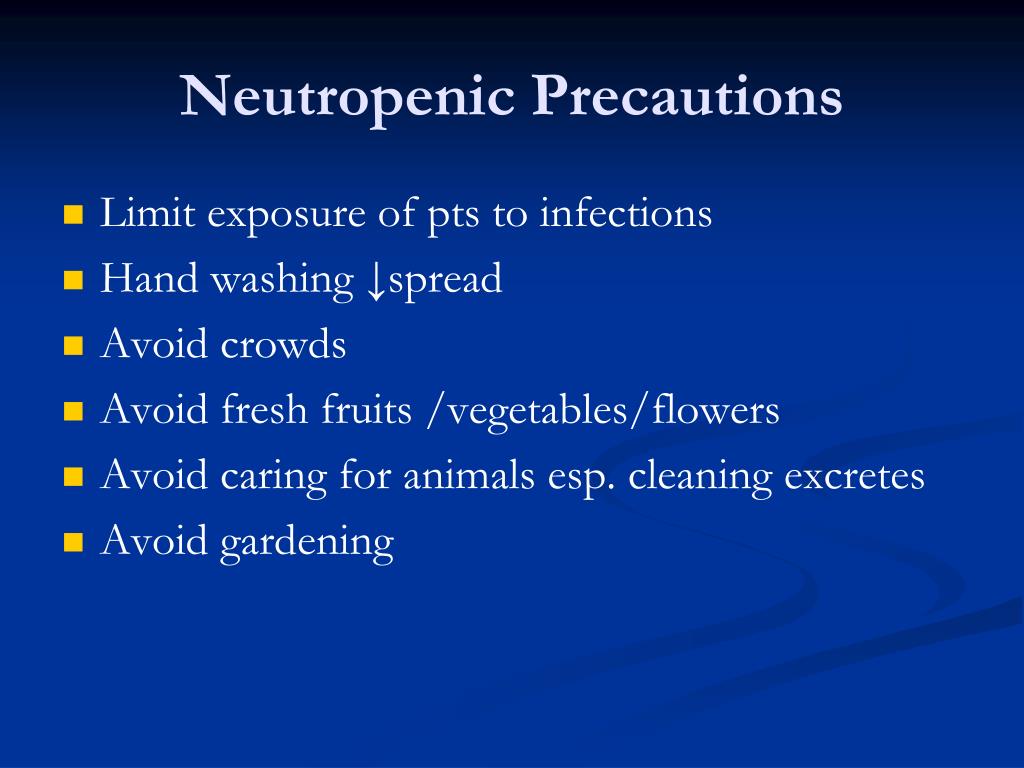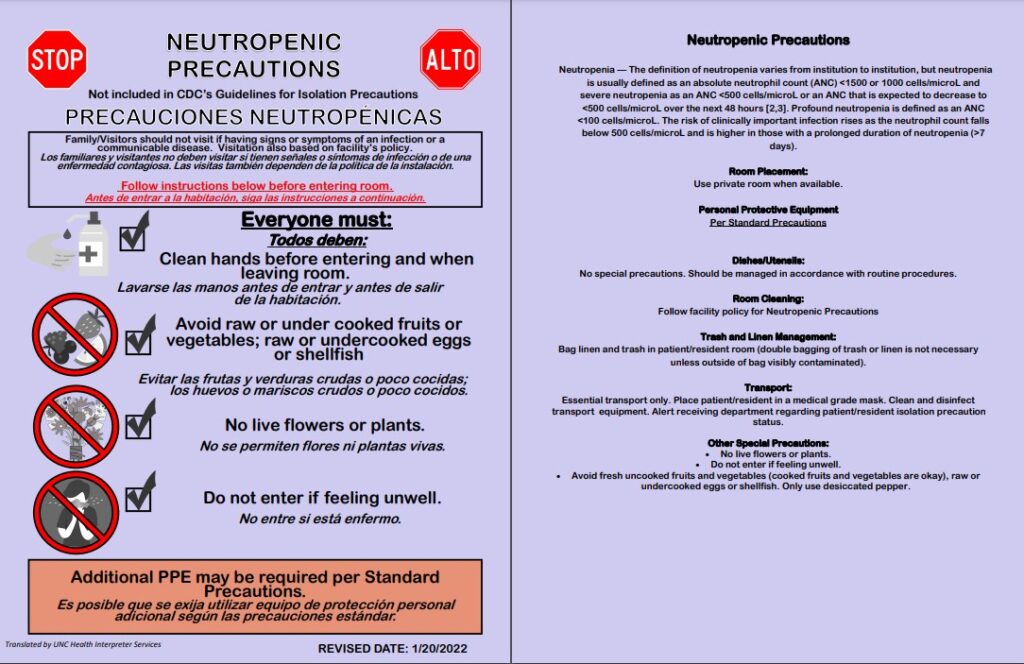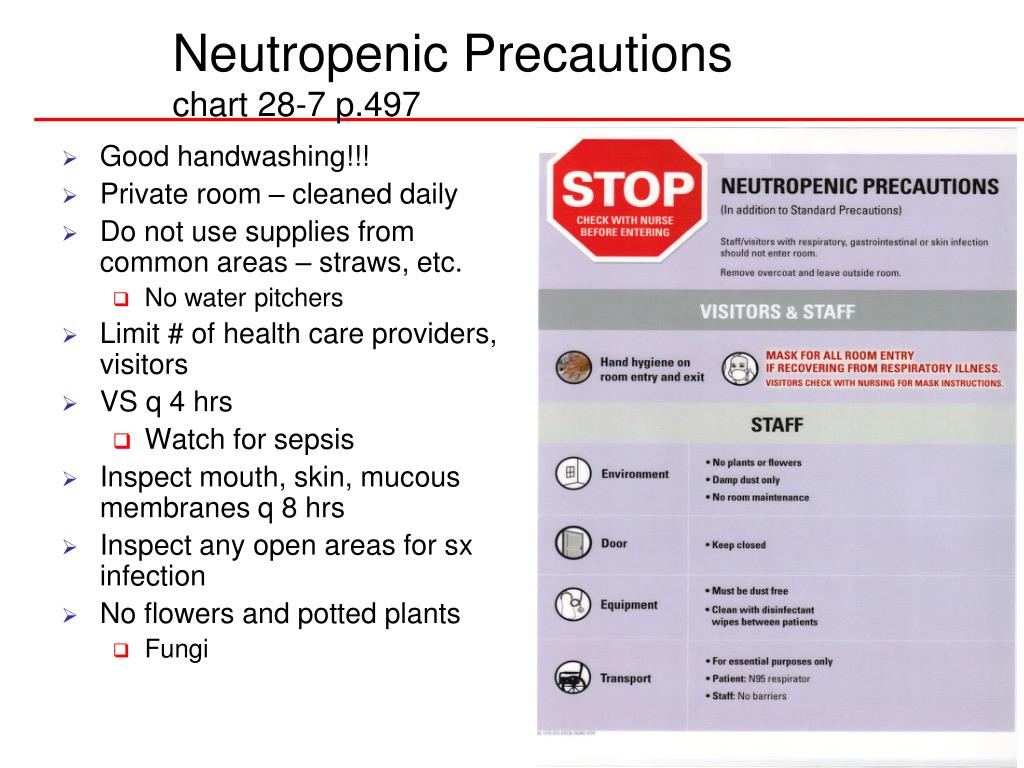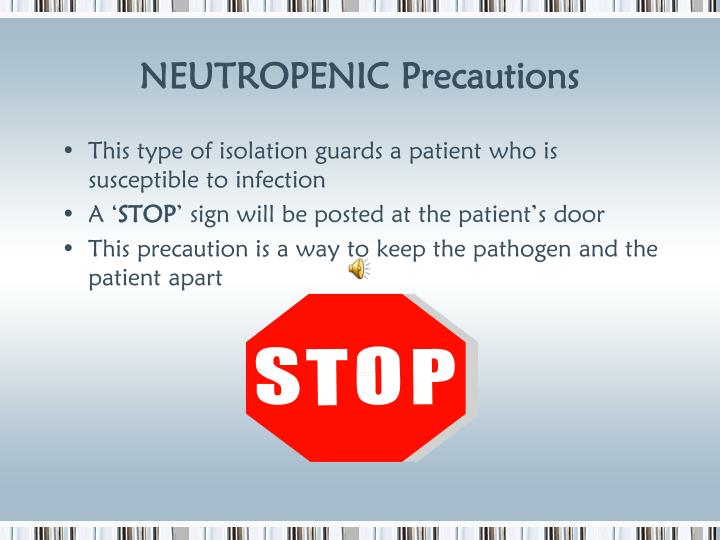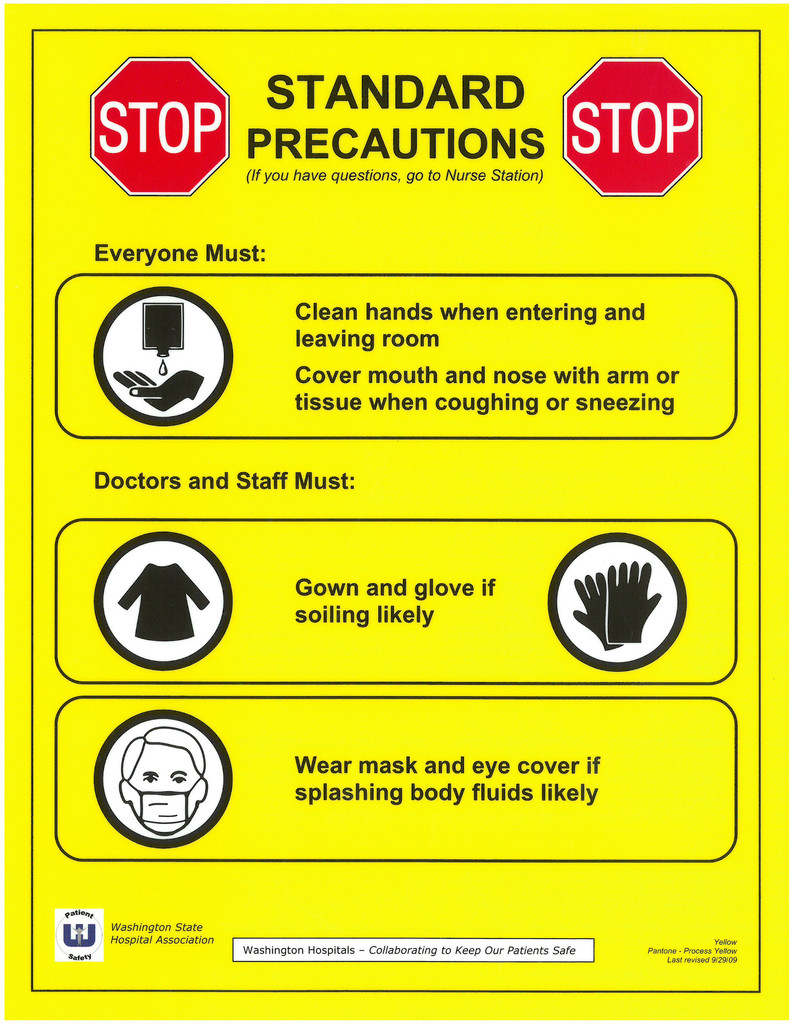Neutropenic Precautions Sign Printable Free
Neutropenic Precautions Sign Printable Free - Neutropenic precautions avoid crowds, and people with infections avoid fresh/raw fruits and veggies no fresh flowers or plants avoid ice and stagnant water no pepper on meal trays. What is a neutropenic fever? Neutropenic precautions can vary, but some common measures include maintaining good hygiene, avoiding close contact with sick individuals, and avoiding certain activities or. When your anc is lower than 500, you are at risk for getting a serious infection. This condition is called “neutropenia.” if you are neutropenic and develop a fever or signs of infection, contact. Follow food safety instructions if bringing in outside food. Patients receiving cancer treatments may experience a decrease in the number of white blood cells (neutrophils) that are responsible for fighting infection. Neutropenic precautions neutropenia — the definition of neutropenia varies from institution to institution, but neutropenia is usually defined as an absolute neutrophil count (anc) <1500 or. No entry for ill or recently exposed persons. Signs and symptoms of infection to look for: Follow food safety instructions if bringing in outside food. Clean and disinfect reusable equipment before use on another person. • taking basic precautions can reduce the chance of developing an infection during neutropenia. These safety measures are called neutropenic precautions. What are neutropenic precautions and when are they used? If your temperature is above 100.4, call your doctor right away. Neutropenic precautions are used for patients who can get infections more easily because. Signs and symptoms of an infection? Neutropenia is earmarked by low levels of white. Patients receiving cancer treatments may experience a decrease in the number of white blood cells (neutrophils) that are responsible for fighting infection. Follow food safety instructions if bringing in outside food. Check your temperature twice a day or if you feel feverish. When your anc is lower than 500, you are at risk for getting a serious infection. No entry for ill or recently exposed persons. What are neutropenic precautions and when are they used? What is a neutropenic fever? Each sign (shown in alphabetical order) has a flip side with additional detailed information. When patients experience this, it is. Neutropenic precautions can vary, but some common measures include maintaining good hygiene, avoiding close contact with sick individuals, and avoiding certain activities or. • taking basic precautions can reduce the chance of developing an infection. These safety measures are called neutropenic precautions. When patients experience this, it is. Neutropenia is earmarked by low levels of white. Neutropenic precautions are used for patients who can get infections more easily because. These cells are the body’s main defense against infection. For patients with neutropenia, even a minor infection can quickly become serious. Single room positive pressure and door closed if ordered by physician persons with a cold, flu, sore throat, open sores or infection should not enter this room no animal visitors no fresh or. • your physician factors in any other health problems you have when deciding whether. What. Neutropenic precautions are used for patients who can get infections more easily because. Stop neutropenic precautions (in addition to standard precautions) mask for all room entry if recovering from respiratory illness. Neutropenia is earmarked by low levels of white. • fever that is 100.4°f (38°c). These cells are the body’s main defense against infection. Neutropenic precautions neutropenia — the definition of neutropenia varies from institution to institution, but neutropenia is usually defined as an absolute neutrophil count (anc) <1500 or. Neutropenic precautions avoid crowds, and people with infections avoid fresh/raw fruits and veggies no fresh flowers or plants avoid ice and stagnant water no pepper on meal trays. When your anc is lower than. Stop neutropenic precautions (in addition to standard precautions) mask for all room entry if recovering from respiratory illness. These cells are the body’s main defense against infection. Call your doctor right away if you have: When patients experience this, it is. Each sign (shown in alphabetical order) has a flip side with additional detailed information. When you have neutropenia, there are things you can do to prevent infection. Stop neutropenic precautions (in addition to standard precautions) mask for all room entry if recovering from respiratory illness. Check your temperature twice a day or if you feel feverish. This condition is called “neutropenia.” if you are neutropenic and develop a fever or signs of infection, contact.. • your physician factors in any other health problems you have when deciding whether. Check your temperature twice a day or if you feel feverish. Neutropenia is a blood condition. Precaution information on front of sign and details on back which includes common definition of neutropenia and recommendations for room placement, hand hygiene, ppe don and doff. • fever that. Call your doctor right away if you have: Neutropenic precautions avoid crowds, and people with infections avoid fresh/raw fruits and veggies no fresh flowers or plants avoid ice and stagnant water no pepper on meal trays. For patients with neutropenia, even a minor infection can quickly become serious. Precaution information on front of sign and details on back which includes. Follow food safety instructions if bringing in outside food. Call your doctor right away if you have: No entry for ill or recently exposed persons. Signs and symptoms of an infection? Check your temperature twice a day or if you feel feverish. Neutropenic precautions can vary, but some common measures include maintaining good hygiene, avoiding close contact with sick individuals, and avoiding certain activities or. Neutropenic precautions neutropenia — the definition of neutropenia varies from institution to institution, but neutropenia is usually defined as an absolute neutrophil count (anc) <1500 or. When you have neutropenia, there are things you can do to prevent infection. What is a neutropenic fever? For patients with neutropenia, even a minor infection can quickly become serious. Neutropenia is earmarked by low levels of white. • fever that is 100.4°f (38°c). When your anc is lower than 500, you are at risk for getting a serious infection. Signs and symptoms of infection to look for: Each sign (shown in alphabetical order) has a flip side with additional detailed information. • your physician factors in any other health problems you have when deciding whether.Neutropenic Precautions Door Sign Printable
Critical Care and Neutropenic Precautions Sign Brevis
Neutropenic Precautions Door Sign Printable
Critical Care and Neutropenic Precautions Sign Brevis
Neutropenic Precautions Door Sign Printable
Neutropenic Precautions Door Sign Printable
Neutropenic Precautions Door Sign Printable
Neutropenic Precautions Door Sign Printable
Neutropenic Precautions Door Sign Printable
Cdc Neutropenic Precautions Sign Printable
Clean And Disinfect Reusable Equipment Before Use On Another Person.
Patients Receiving Cancer Treatments May Experience A Decrease In The Number Of White Blood Cells (Neutrophils) That Are Responsible For Fighting Infection.
What Are Neutropenic Precautions And When Are They Used?
What Do I Do If I Think I Have A Fever Or.
Related Post:
